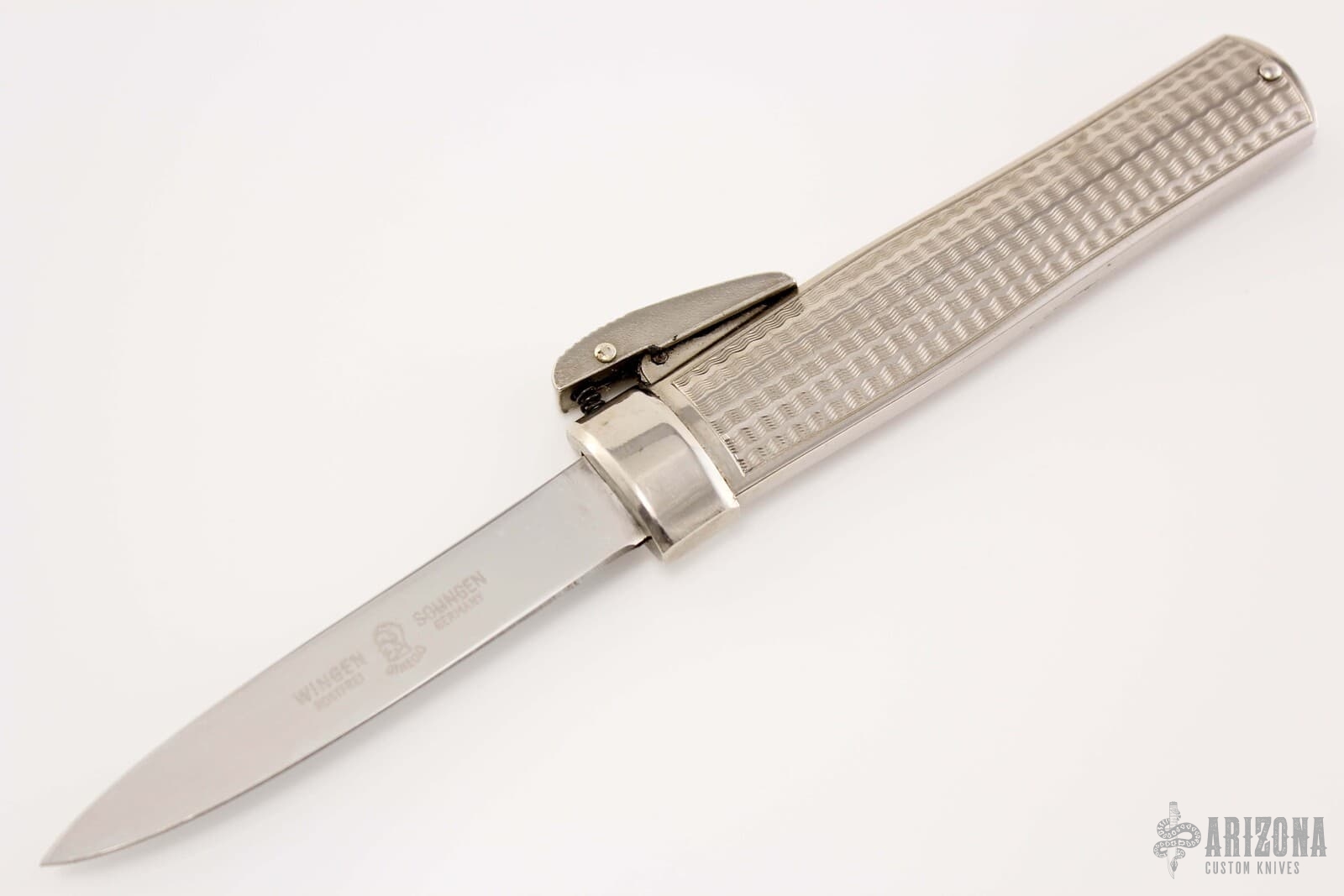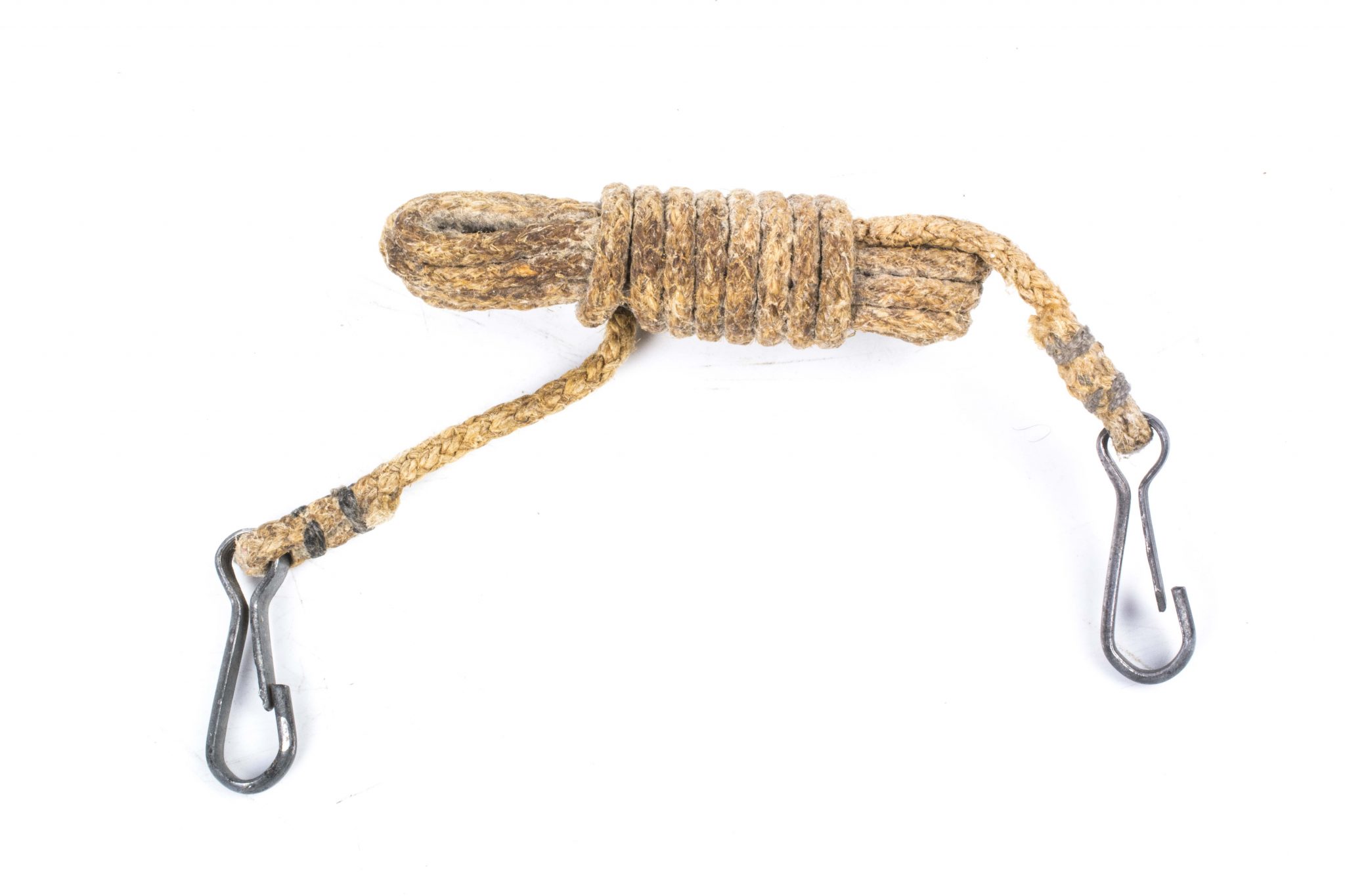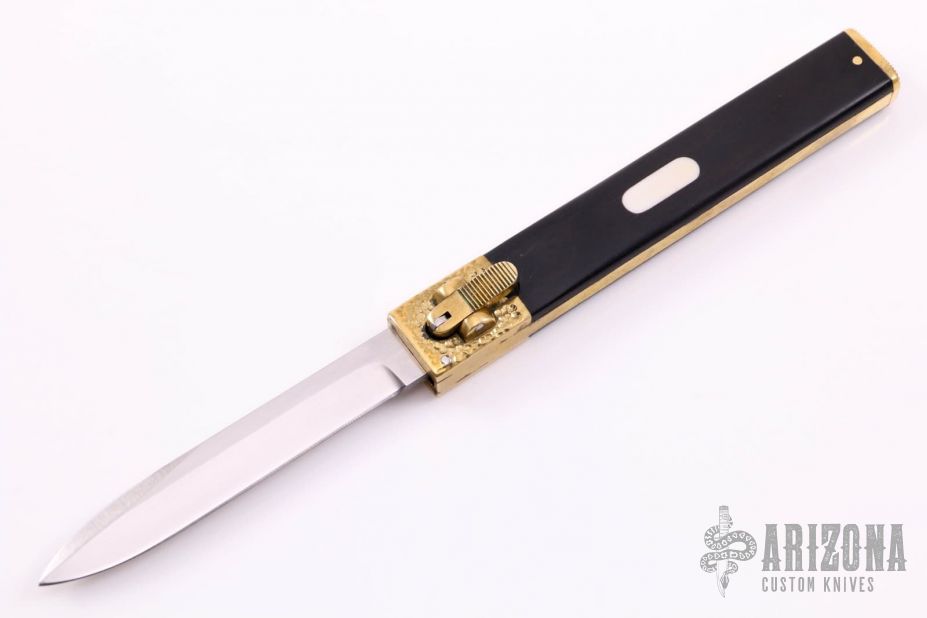

The Type II FKm is the same knife, but with takedown features, and was produced from 1941 to the end of World War II. The Type I FKm has wood scales (handle), was made from 1937-1941, and unlike successive models, has no 'takedown' capability. There are three principal types of wartime-era Luftwaffe Fallschirmjäger-Messers. The FJM's spike does not lock when opened and was never intended to be used as a combat weapon, though individual German paratroopers may have employed it as such. Primarily intended for untangling rope knots, it can also be used as a prying tool.

The FJM was also equipped with a folding marlinspike or awl. The FJM may also be opened by flipping the blade release lever while flicking the wrist holding the knife, causing the blade to extend. Releasing the lever locks the blade into position. To open the blade, the user points the FJM downwards while flipping up the fulcrum-style operating lever, allowing gravity to draw out the blade to its fullest extent. The blade itself is a relatively blunt spear-point, and the profile is flat ground, tapering to a utility edge. The Luftwaffe Fallschirmjäger-Messer uses a sliding blade inside a metal gripframe, which was originally fitted with smooth wood scales, usually of beech or walnut. Though not intended for use as a fighting knife, the FJM's blade could be and was used as a close combat weapon when necessary.

First produced in 1937, the FJM was issued to German flight crews and paratroops, primarily for the purpose of cutting a trapped parachutist from his rigging in case he landed with a tangled parachute, or became entangled in trees with the shroud lines. After 7 years, we have finally managed to overhaul New York’s outdated and discriminatory pocket knife ban.Original Item: Only One Available. This is a lovely example of a late-war produced Type II "Take down" version of the legendary Luftwaffe Fallschirmjäger-Messer, or German air force paratrooper knife (FJM or FKm), with a Solingen RB Nr on the blade. These knives utilize a four-inch (100 mm) telescoping (OTF), gravity-propelled locking blade. "That said, I’m glad the Governor finally signed this law so that others coming up behind me don’t need to go through what happened to me."Īdded Assemblyman Dan Quart, who sponsored the bill, "The third time really is the charm. “As someone who was arrested and spent time in jail for carrying a knife I used as a construction worker, I think this law should have been repealed long ago," said Mark Moses, a community leader with VOCAL-NY, in a statement. "While I remain aware of the cautious community voices, I cannot veto a bill passed by the Legislature to address a decided constitutional infirmity in existing law, as recently affirmed by a federal court," Cuomo said.Īdvocates and elected officials celebrated the reversal, while at the same time wondering why the governor spent so long upholding a ban that he now deems "absurd." District Judge Paul Crotty harshly criticized the unreliable “wrist-flick test"-an imprecise standard used by both the NYPD and Manhattan District Attorney Cy Vance to see whether the folding knives require force to open. Specifically, the governor cited a federal court ruling this past March that found the law to be unconstitutionally vague. So, what's changed? The legal landscape, according to Cuomo. In a statement on Thursday, the governor said that "uniform opposition of the State's law enforcement entities and mayors" had left him "constrained to veto similar bills." Efforts to lift the ban were strongly opposed by the NYPD and police unions, as well as prosecutors such as Manhattan District Attorney Cy Vance. In recent years, the state legislature has twice passed legislation to decriminalize the knives, which Cuomo has vetoed on both occasions. Progressive activists, public defenders and some elected officials have long argued that the ban unfairly targets blue-collar service employees-including construction workers, chefs, and day laborers-who use folding knives for work.Įvidence also suggests the law has been disproportionately enforced against people of color: analyses from both the Legal Aid Society and the Village Voice found that the vast majority of people charged with gravity knife possession in New York are black and Hispanic. The legislation will end the criminal prohibition on certain folding pocket knives, which are commonly sold in stores across New York, but have been illegal to possess in the state since 1958.

Governor Andrew Cuomo signed a bill on Thursday to decriminalize gravity knives, following years of pressure from criminal justice advocates and a recent federal court ruling that found the existing law to be overly vague.


 0 kommentar(er)
0 kommentar(er)
